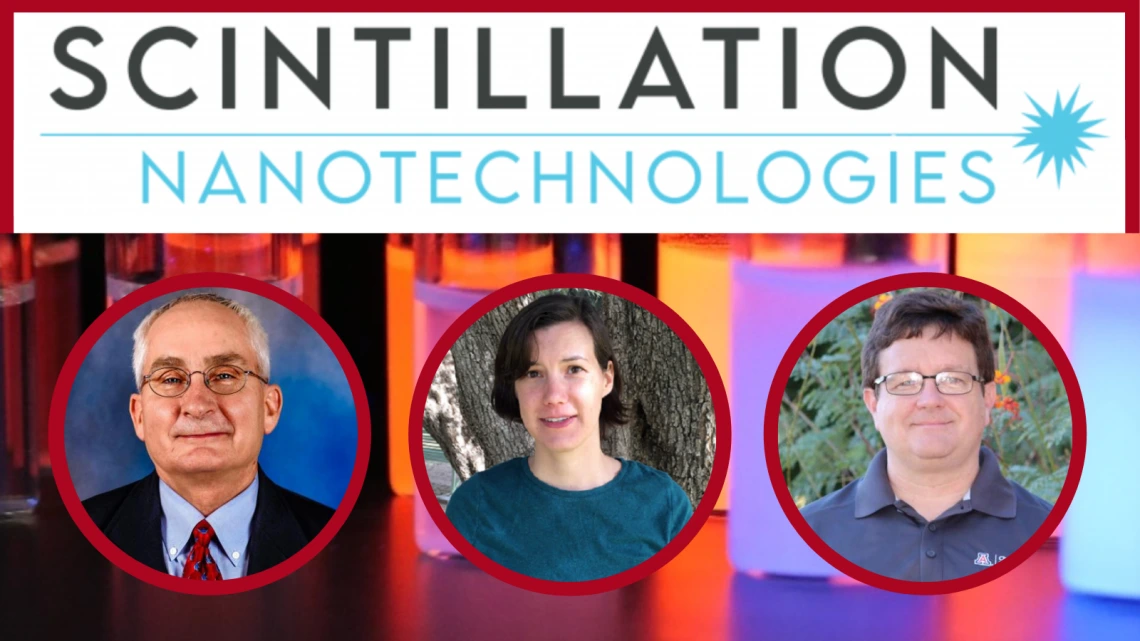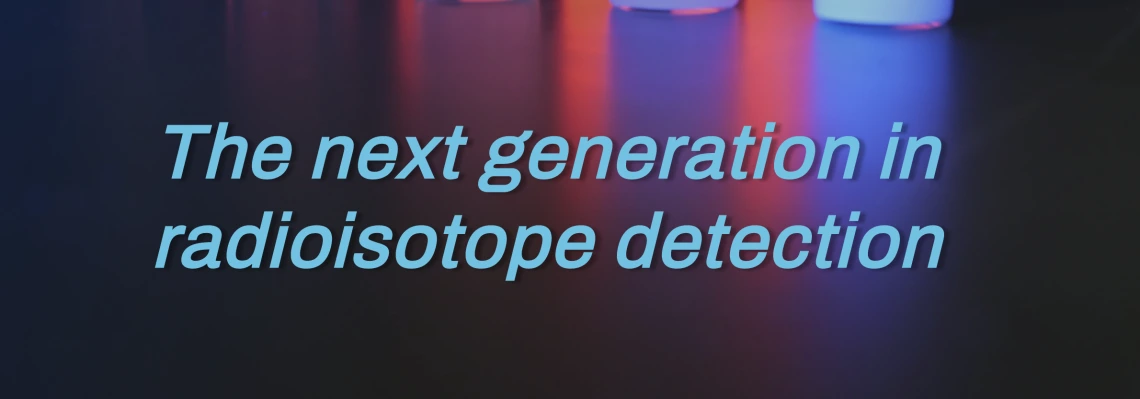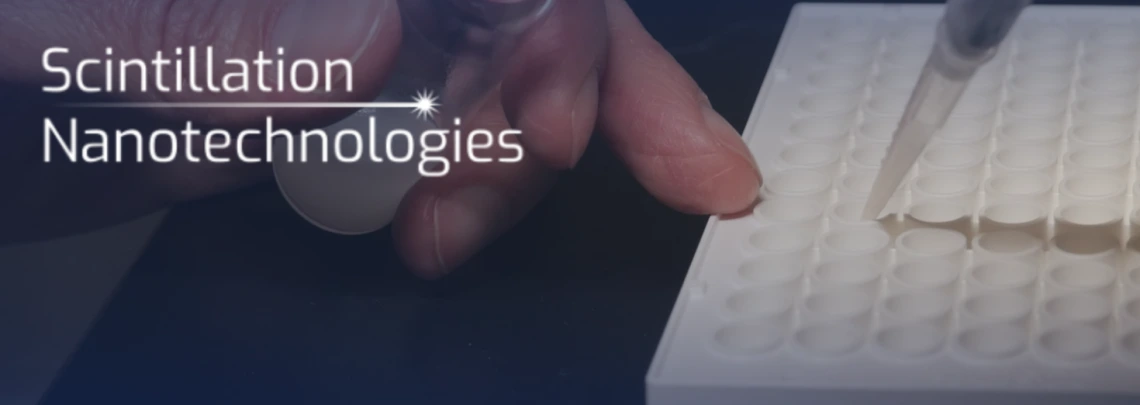It Takes a Community: A UArizona Inspiration Story

At FORGE, we love to celebrate when a member of our community gets a win!
In case you missed the good news, Scintillation Nanotechnologies, Inc (SNT), a FORGE Ahead resident and graduate of the S20 Advanced Entrepreneur Program, earned $30K through the Flinn Foundation's Bioscience Entrepreneurship Program! Yet another achievement for this innovative University of Arizona faculty-led venture. Read more here.
In this week’s newsletter, we wanted to share more of SNT’s story as it provides insight into the complex journey on which entrepreneurs embark, and imparts valuable takeaways for other founders, particularly those involved in faculty-led ventures.
SNT develops, manufactures, and sells a series of proprietary and patent-protected scintillating composite nanomaterials for the detection of radioisotopes in biochemical, environmental, energy, and drug discovery applications. Their vision is to bring previously unheard-of measurement capabilities to radioisotope detection, enabling researchers across the full range of scientific endeavors to ask and answer previously impossible research questions.
Put simply, SNT makes drug discovery faster!
A key motivating factor in initiating the project was to answer research questions that couldn’t be answered using existing technologies. After studying and working with the technology for some time, UArizona faculty members in the Department of Chemistry and Biochemistry, Dr. Craig Aspinwall and Dr. Colleen Janczak, and now co-founders, committed to fully starting the company in November of 2018.

However, before committing to launching SNT as a company, the founding duo worked hard to establish support, receiving a lot of help along the way, including intellectual property protection, funding, coaching, mentorship and connections from Tech Launch Arizona (TLA).
The funding TLA provided through its Asset Development program in May of 2018 enabled SNT to grow from producing small amounts of material at the research level to producing enough to establish commercial viability, and confirmed their ability to scale.
The excitement from this accomplishment propelled SNT forward, and they began to work with an early mentoring group assembled by TLA through its NSF I-Corps program, a course designed to teach techniques in customer discovery. In 2020, one of the grants they submitted to the Small Business Innovation Research program (SBIR) was funded further validating the team was onto something special.
Although securing funding was integral to the acceleration of SNT, Craig and Colleen knew they needed more than just monetary support. They recognized that, as faculty members and scientists, their team needed someone with business experience. Colleen lamented that navigating business related details was an obstacle.
She asked herself, “Okay let’s start a company, now what?”
Craig added that building a business was drastically different from anything he had done before. He noted that the knowledge base coming from academia is different than industry, and they needed to figure out how to ask the right questions.
Cognizant of their need for business expertise, Craig and Colleen began searching for mentors. Through this search, they met Chuck Phillips, who became their mentor in March of 2020. Chuck became interested in what SNT was doing and proved to be an invaluable resource. Ultimately, the founders decided he was way too valuable to just serve as a temporary mentor and they asked Chuck to join the team as the CEO.
Chuck was delighted to become a partner. He stated it was a “no brainer to get involved” and he was particularly inspired by the strong foundation SNT already had. Chuck remarked that the quality of mentors and support they had before he came on was really striking.
Chuck could tell the team was committed, and that the work they were doing offered, as he put it, “real breakthrough possibilities that can truly improve the human condition.”
With their growing team, another SBIR grant from the National Science Foundation, acceptance into a national I-Corps program, SBIR bootcamp, and FORGE’s S20 Advanced Entrepreneur Program (AEP), summer of 2020 was gearing up to be an intense and groundbreaking experience. The funding, along with the participation in development programs, opened the doors for the company to develop on a larger scale.

According to Chuck, participation in AEP that summer helped SNT develop strategies for assessing the total market, validating ideas, and was particularly integral in pushing them to refine their messaging.
In reflecting, Chuck said “every time we've managed to simplify the message and make it clearer, we've had success.
People need to understand the products, the benefit, and the business.” Refining messaging was particularly important for SNT, because they found that as academics, they ran into trouble communicating their ideas with customers and investors who may not have a deep background in drug discovery. As academics, Craig and Colleen were not used to giving short pitches and realized in hindsight that they were giving scientific talks with excruciating detail, something they credit FORGE and Chuck with helping.
Now, almost a year later, SNT is still working hard to develop their business, the team is growing, and they are currently meeting with potential investors. With the extra bonus being the recipient of the $30K grant through the Flinn Foundation Bioscience Entrepreneurship Program, the road ahead looks bright.
When asked what lessons they have learned in their journey so far, the team each shared valuable insights. Craig implored founders to get mentorship to help fill gaps in knowledge. He explained that this is particularly important for founders coming from academia, because business expertise is imperative. He added it is important to find mentors who, as he put it, “are willing and able to help drive these ventures past the technical stage.” Colleen agreed that outside input is necessary. She recommended that founders be “open to criticism and able to recognize when to take action based on someone’s input.” She added that it is important to be able to discern what advice will be useful for your company. Finally, Chuck advised founders, particularly those involved in faculty-led ventures, that an eagerness to take in input is of utmost importance. “If faculty are able to listen to feedback they will be able to get out of the starting blocks,” he advised.
And lastly, and perhaps most importantly, Craig wryly added, “pick a name people can say.”
If you want to learn more about this team, cheer them on as they compete at next month’s IdeaFunding competition on April 15th!

